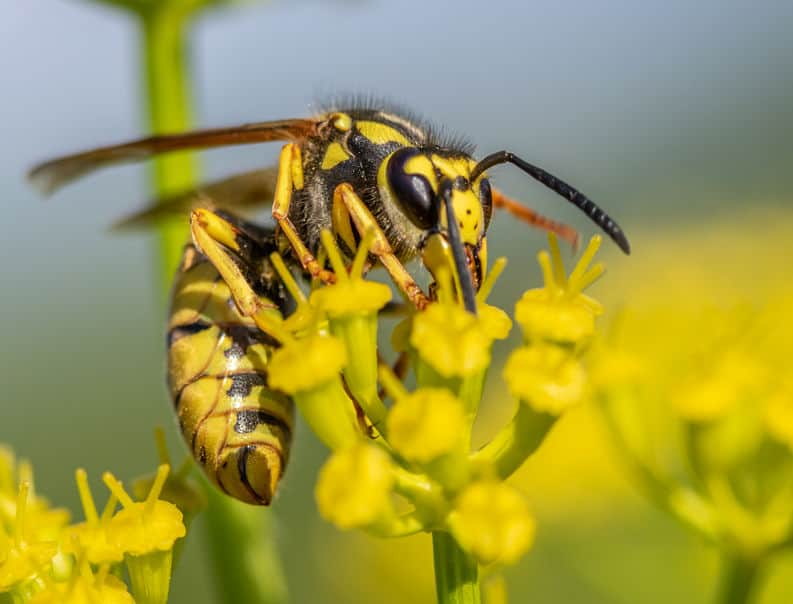When wasps are harassing our picnics it not an uncommon thought to wonder if these insects have any beneficial role to play, or whether we would just be better off rid of them.
Wasps have an important role in the ecosystem. By preying on insects often considered pests, such as greenflies, they control their numbers. They are also significant pollinators as nectar is an important food source for wasps.
Let’s take a more detailed look at the important role wasps have in our ecosystems.
Do wasps eat pests?
Wasps are predators and will kill and chop up insects, taking the parts to their nest to feed the developing larvae within. Many of the insects that they prey on are considered pests. They play an important role as without wasps to prey on, insects such as greenflies and caterpillars would otherwise surge in numbers and consume more of our vegetables.
So, wasps reduce the number of insects and prevent their numbers from becoming too large. In this way, wasps play an essential role in keeping the ecosystem in balance. They truly are the gardener’s friend.
Some wasp species such as Yellow-jackets are very efficient at scavenging dead insects, so helping to clean up and breakdown dead matter and so prevent it from piling up.
Do wasps pollinate?
Wasps are important pollinators. When we think of pollination we think of bees, but wasps also love nectar, produced by plants to attract insects. Although most wasp species do not use the nectar to produce honey, they nevertheless will feed off the nectar and so in the process pollinate plants.

Without pollinating insects such as bees and wasps, flowers and plants would not be able to reproduce. This really is a vital role fulfilled in a significant part by the wasp population.
The fig wasp is an example of a wasp that has a particularly important role. They gain their name from the fact that they are actually the only pollinator of fig trees. So, without this unique wasp, we wouldn’t even have figs.
Fig wasps are solitary wasps so don’t live in large colonies. They use figs as places to lay their eggs. The larvae develop in the fig. There is a catch, however, if the fig happens to be female the wasp will become trapped and fully dissolved inside the fig. In the process, they pollinate the plant.
What are the downsides to wasps?
Aside from the obvious nuisance and risk of being stung, wasps also can cause many problems in areas where they have become an invasive species.
In New Zealand, common wasps imported from Europe have had a bad impact on local bee populations. Given the chance wasps will prey on bees and will raid honeybee nests for the honey. This one-sided battle has left many bee populations vulnerable in areas where wasps have not previously been a part of the ecosystem.
So, wasps while having the potential to cause havoc and harm, also play an essential role within our ecosystem.
